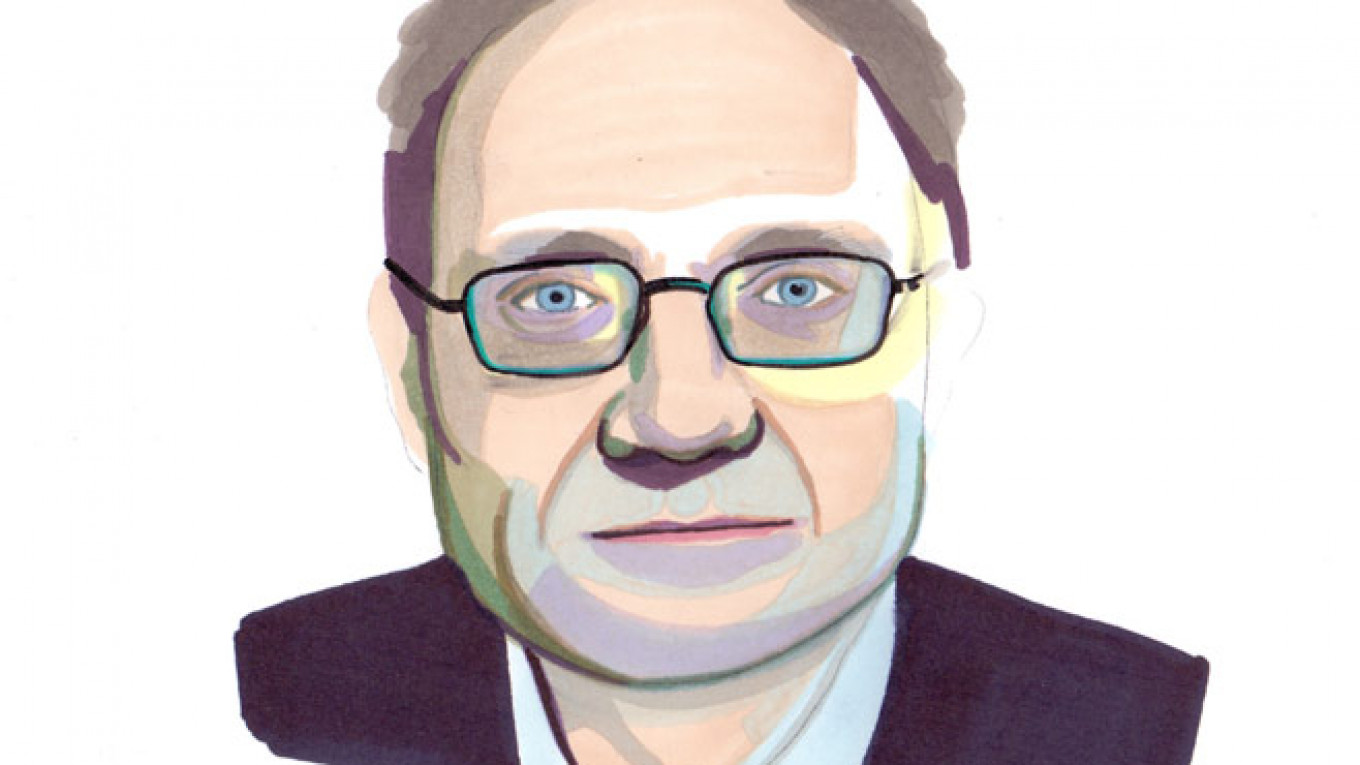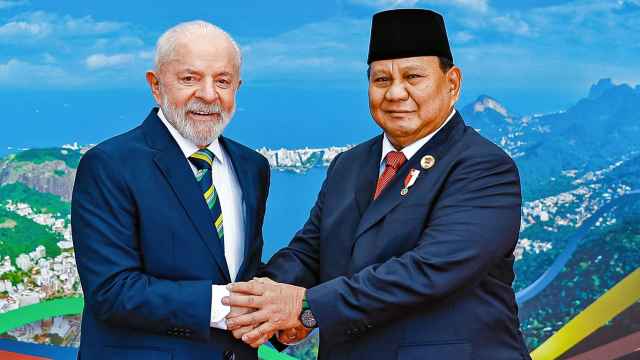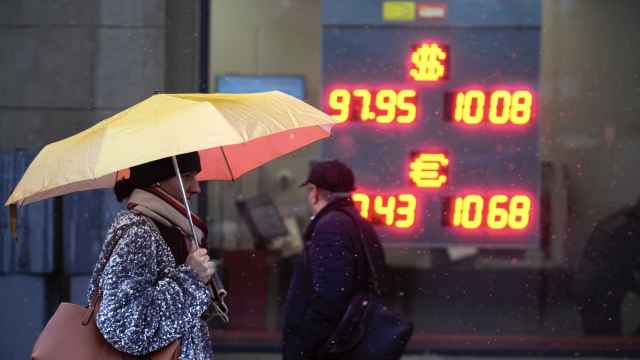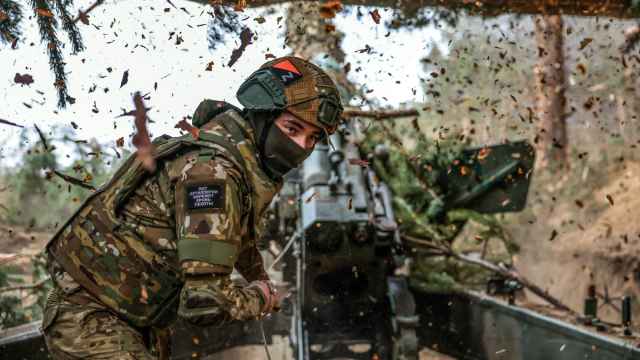From a macroeconomic standpoint, parliament has developed a realistic budget for 2016: It is based on an exchange rate of 63 rubles to the dollar, an oil price of $50 per barrel and a 0.7 percent growth rate in gross domestic product. The problem with the budget is that falling oil and gas revenues have contributed to an overall 3 percent decline in GDP compared to 2014. Accordingly, spending is also down and that could force GDP growth to contract by as much as a full percentage point.
In fact, the budget is terribly out of balance. Funding for the government bureaucracy remains largely unaffected, even though defense spending has fallen in real terms. At the same time, leaders have outdone themselves in slashing funding to critical social programs. Federal spending on education has dropped by 40 percent in real terms compared with 2013 while spending on health care has plummeted by 50 percent compared with 2012. This is an unprecedented decline.
The budget indexes pensions at 4 percent against an annual inflation rate of 6.5 percent. However, if necessary, the government can increase that index by drawing against a reserve associated with a moratorium on interest-bearing deposits. The budget also provides an additional financial cushion: Leaders can spend from two reserve funds to raise salaries of state employees or implement other similar measures. However, those reserves contain less than 500,000 billion rubles ($7.5 billion) — only enough to put out a small fire.
Increasing the retirement age would immediately and significantly reduce budget outlays, but the authorities would clearly like to put that option on hold until after presidential elections in 2018, which should not be a problem in the coming year. To meet the anticipated budget deficit of 3 percent of GDP, the authorities plan to raise approximately 300 billion rubles ($4.5 billion) through domestic borrowing. That represents only 0.4 percent of GDP: the domestic public debt market can handle much larger sums.
That means there is enough money for next year, and thanks to the devaluation of the ruble, the Reserve Fund and National Wealth Fund continue to exceed 10 percent of GDP. Financing for next year is not at risk — the most serious problems are likely to arise further down the road. Theoretically, these reserves are large enough to finance three years of budget deficits, with the provision that the government prefers using the National Wealth Fund for non-budgetary expenses.
But at this point oil prices become a factor. Analysts agree that the inertia of low oil prices could continue through 2016, depending on how the re-introduction of Iranian oil influences the market. However, the current low prices are pushing many major oil fields out of the market, and that has led to widespread expectations that prices will begin climbing in 2017-18. If oil prices gradually increase to $75 per barrel by 2017, Russia will avoid disaster: it can finance its budget deficit with public debt.
But if oil prices remain at $50 dollars per barrel and the authorities make no decision to reduce expenses, then only 1 trillion rubles ($15 billion) or so will remain in the Reserve Fund by 2017 — only 40 percent of the 2.5 trillion ($37.5 billion) that will be needed to cover the budget deficit. That is a serious but manageable problem: as before, the budget deficit should not exceed 3-4 percent of GDP.
Potential budget shortfalls have a political dimension, and elections are a time of increased budgetary spending. Russia will hold parliamentary elections in 2016, and officials are already considering a heftier indexation of pensions than the current 4 percent in order to consolidate voter support.
As mentioned above, provisions exist for such an increase. However, the presidential elections in 2018 might present unforeseeable challenges. Despite the deep crisis, Russian society is currently loyal to the government: support for President Vladimir Putin is at an all-time high of 80-90 percent. But nobody knows how durable that loyalty is. The Russian people might grow tired of the crisis. If that happens, how will leaders make budgetary decisions without the opportunity to draw on reserve funds to cover additional budget deficits?
If support for the authorities begins to fall, that will make it more difficult to cut spending and borrow money to pay down the public debt because the growing economic and political risks will spook investors. That is the most serious element of uncertainty that budget planners will face for the next three years.
This leads to a problem: How much should the authorities raise salaries and pensions? State employees and pensioners will demand a return to the standard of living they enjoyed in what they now consider a year of prosperity: 2014. But if oil prices remain at current levels, the authorities could only accomplish that through an emission: The Central Bank would have to either directly or indirectly acquire government debt instruments.
Belarus experienced something similar in 2010-11 when President Alexander Lukashenko boosted social spending and wages without warning just before elections. Belarus paid for that with a short period of hyperinflation, and Lukashenko paid for it with a decline in voter trust to only 20 percent. Of course, Putin's popularity is incomparably higher at the moment.
Whatever happens with the price of oil, the main problem remains the same: Russia's current economic model does not provide for the country's development under the current conditions. The crisis in 2008 was brief and did not prompt leaders to change their economic model, which was one based on high oil prices and a growth in consumption that outstrips growth in the GDP. Leaders cannot bring that model back: they need new sources of growth to attain at least 3-4 percent annual growth. Even if oil prices were to rebound to $75-$85 per barrel, Russia's GDP would grow by no more than 1.5-2 percent now. And if oil prices remain at $50 per barrel, even that status quo would be unattainable. In that case, both society and the government would simply have no choice but to take urgent and decisive economic action.
Mikhail Dmitriyev is president of the New Economic Growth consultancy and served as deputy economy minister from 2000-04.
A Message from The Moscow Times:
Dear readers,
We are facing unprecedented challenges. Russia's Prosecutor General's Office has designated The Moscow Times as an "undesirable" organization, criminalizing our work and putting our staff at risk of prosecution. This follows our earlier unjust labeling as a "foreign agent."
These actions are direct attempts to silence independent journalism in Russia. The authorities claim our work "discredits the decisions of the Russian leadership." We see things differently: we strive to provide accurate, unbiased reporting on Russia.
We, the journalists of The Moscow Times, refuse to be silenced. But to continue our work, we need your help.
Your support, no matter how small, makes a world of difference. If you can, please support us monthly starting from just $2. It's quick to set up, and every contribution makes a significant impact.
By supporting The Moscow Times, you're defending open, independent journalism in the face of repression. Thank you for standing with us.
Remind me later.






